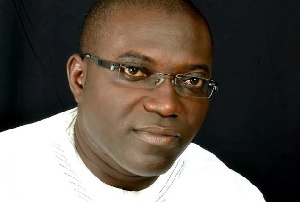- Home - News
- Elections 2024
- News Archive
- Crime & Punishment
- Politics
- Regional
- Editorial
- Health
- Ghanaians Abroad
- Tabloid
- Africa
- Religion
- Photo Archives
- Press Release
General News of Tuesday, 3 June 2025
Source: www.ghanawebbers.com
Ongoing drainage projects must be backed by attitudinal changes towards waste - Adjei-Mensah Korsah
Martin Adjei-Mensah Korsah, the Ranking Member on Parliament’s Works and Housing Committee, has a message for Ghanaians. He urges them to adopt responsible waste disposal habits. He warns that without this change, major infrastructure projects may not solve flooding issues.
Today marks a decade since Accra faced a devastating disaster. On June 3, 2015, flooding and fire claimed 154 lives. The nation mourned deeply during this tragic event.
That night, heavy rains hit the capital hard. The severe flooding turned catastrophic when an explosion occurred at the GOIL fuel station near Kwame Nkrumah Circle. Many people sought refuge there as floodwaters rose quickly.
Unfortunately, leaking fuel spread across the water's surface. A spark ignited the fuel, causing a massive explosion that engulfed the area in flames.
On JoyNews’ News Desk on June 3, Mr. Adjei-Mensah Korsah discussed ongoing projects under the Ghana Accelerated Rainfall Infrastructure Development (GARID) programme. He mentioned progress in areas like Odorna and Avenor. The committee visited these sites three weeks ago and found work underway.
However, he cautioned that infrastructure alone cannot solve flooding problems in Accra and other areas. “The projects are ongoing,” he said, “but we need more than just infrastructure.”
He pointed out poor waste management as a significant issue. Indiscriminate dumping of solid waste, especially plastics, clogs drains. “What is the point of creating drains if they get filled with waste?” he asked.
Mr. Adjei-Mensah Korsah emphasized the need for national discussions on waste generation and disposal. He believes reducing plastic use could help combat flooding significantly.
“If we can cut our reliance on plastics by 30 to 40%, we would make progress,” he stated.
He also expressed concerns about financial implications from reckless waste disposal. Resources meant for long-term projects like GARID are being used to manage sanitation issues instead.
“If we don’t address reckless waste disposal,” he warned, “it will continue to drain funds meant for permanent solutions.”











